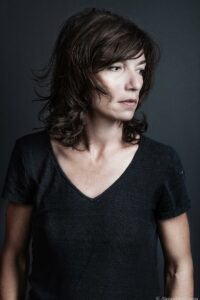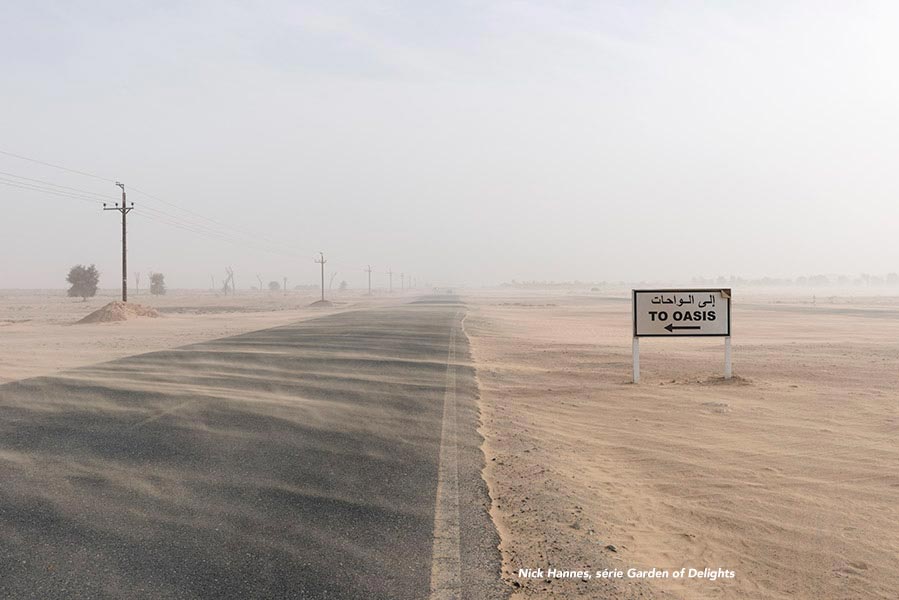
After a stormy schooling, Valérie Osouf moved to Senegal for 9 years, where she made her debut film in 1996, No Comment, the country one never reaches, a 16mm celluloid documentary about people deported from France because of the Pasqua/Debré immigration laws.
In Dakar, after a spell at Philosophy college interrupted by a year-long strike, she undertook a master’s degree in journalism on film distribution in West Africa, alongside a drama course at the National Conservatoire of Senegal. To support her livelihood, she worked in the printed press and on the radio (Le Monde, RFI, Sud FM), mainly on the culture desks.
Back in Paris, Valérie developed a number of projects dealing with the contemporary echoes of colonial history, and took a scriptwriting course at La Fémis under the guidance of Jacques Akchoti.
In 2008, she completed the co-direction of a historical documentary, Cameroon: Autopsy of an Independence, which was broadcast on France 5, TSR and RTBF (Program33). The film won the Audience Award at the Pessac International History Film Festival and was shown at around a hundred screenings followed by political debates in France, Cameroon and Germany.
In spring 2012, just before the French presidential election, she completed her first feature-length documentary, National Identity (Granit Films). The film, a critical analysis of the contradictions of republican universalism in the light of the double penalty, was selected at around fifteen festivals abroad and broadcast as an exclusive stream on Télérama’s website, where it attracted a high audience for an object of this nature.
In January 2014, Valérie completed a short documentary on collective history and intimate memory in the face of Alzheimer’s disease and the Algerian war, Afterwards. This short film was shown at a dozen festivals and published on the website of the contemporary art magazine Afrikadaa, along with a text on the complexity of creating an anti-colonial work using archives produced by the colonial power.
These last two films are produced by Granit films, the production structure she co-founded with filmmakers Alain Gomis (L’Afrance, Tey, Félicité…) and Newton Aduaka (Rage, Ezra…).
In 2016 and 2017, Valérie Osouf directed a portrait of the filmmaker Abderrahmane Sissako on his territories of life and cinema, from Mali to China via Russia and Mauritania. The 52-minute version was broadcast on ARTE and the feature, Sissako, Beyond Territories, circulated in international festivals (FESPACO, NYAFF, BIFF, …), before its US release with Cohen Media in conjunction with that of Sissako’s latest film, Black Yea, planned in 2024 (Petit Dragon production).
Valérie is currently developing a feature-length international documentary on human mobility, After Babel, inspired by Edouard Glissant’s novel Sartorius, to be shot in 5 countries (EAU, Russia, Rwanda, China, Canada) alongside novelist Patrick Chamoiseau, produced by filmmaker Eyal Sivan.
At the same time, she has taught documentary cinema at the Beijing Film Academy, works at the Cinéfabrique, was a member of the CNC / Institut Français’s Aide aux Cinémas du Monde committee for 8 years, and co-curated with director Dyana Gaye a cycle of 126 pan-African and Afro-diasporic films: Tigritudes, presented at the Forum des Images in 2022 as part of the Africa2020 Cultural Season, before touring to Dakar, Saint-Louis, Bobo-Dioulasso, Marrakech and soon Lusaka, Tangiers, Johannesburg, Soweto, Kinshasa, Lubumbashi, Lagos, Nairobi and London (BFI, spring 2024).
Since 2021, Valérie has joined the artists’ collective School of Mutants, co-founded by Hamedine Kane and Stéphane Verlet-Bottero, with whom she has exhibited at the CIAP in Vassivière, the Het Nieuwe Museum in Rotterdam, the Berlin Biennial of Contemporary Art (curated by Kader Attia), the Kaunas Biennial of Contemporary Art (curated by Alicia Knock and Inga Lace), and soon at the Stanley & Audrey Burton Gallery in Leeds (acquisition: FRAC Bretagne).
In November 2024, she will be shooting a nocturnal urban motorbike film in Kigali, produced by Les films du Djabadjah (Burkina Faso), Karekezi Film Production (Rwanda) and Gaijin (France).
